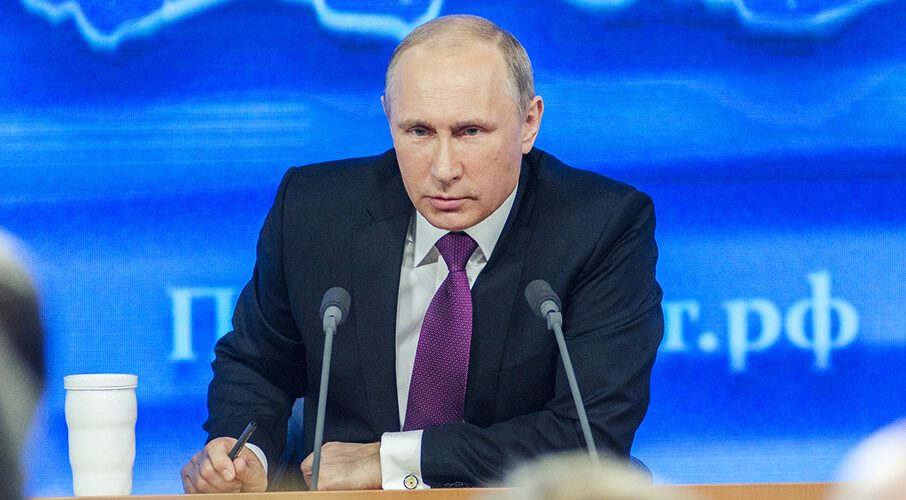 What the Kremlin portrayed as an enormous victory that saved Russian culture and the country’s future may turn out to have dire unintended consequences. It should not be surprising then that Putin’s much manipulated “victory” could turn into ashes, writes Aurel Braun.
What the Kremlin portrayed as an enormous victory that saved Russian culture and the country’s future may turn out to have dire unintended consequences. It should not be surprising then that Putin’s much manipulated “victory” could turn into ashes, writes Aurel Braun.
By Aurel Braun, August 1, 2020
The final plebiscite results on a huge package of Russian constitutional amendments that resulted in a 78 per cent “Yes” vote must have seemed like “mission accomplished” to President Vladimir Putin.
Yet celebrations and triumphant statements by the Kremlin that “a plebiscite on trust in Putin ended with victory for the head of state” are likely much too premature. In fact, this victory may prove to be Pyrrhic — in other words, a win that takes such a devastating toll on the victor that it amounts to a defeat — and a turning point in Putin’s rule.
Certainly, outrage from opposition politicians like Aleksei Navalny was to be expected. What’s more surprising is that so many others raised doubts about the results. Both internally and externally, there are disturbing signs of trouble to come.
On June 30, in an urgent national address, Putin characterized the vote on more than 200 amendments as utterly transformative and said it was about “the country in which we want to live … and want to pass on to our children.” The plebiscite was about saving Russia and securing the country’s future, he said.
President for life
What the Yes or No binary choice sought to camouflage, though, was the plebiscite’s central purpose: keeping Putin in power in perpetuity (or at least until 2036, when he would be age 84) by resetting the clock on his presidency.
Cynics about Russia may dismiss the criticism, contending that the Russian electorate may be sullen but that ultimately it’s supine. Certainly, there were outcries and even mass demonstrations following highly suspect elections in 2011, 2012 and 2018, but these were all brutally suppressed and the opposition was contained.
Yet 2020 is significantly different. The energy-dependent Russian economy is in dire straits, both because of COVID-19 and the dramatic fall in energy prices.
Not surprisingly, the tacit social contract that Putin seemed to have worked out with the population — namely that they would continue to benefit from an improvement in their standard of living in exchange for political acquiescence — has dissipated.
Popularity has dropped
The economy has tanked. Putin largely withdrew to his own lavish safe space as COVID-19 infected wide swaths of the country. Correspondingly, his popularity, according to the independent Lavada Center, declined dramatically to a new low of 59 per cent in the weeks before the vote. In this context, Putin’s personal appeal to the electorate conveyed more a sense of desperation than of confidence.
The fact that the government had to sweeten the non-divisible amendments package by introducing indexed pensions into the constitution, as well as offering lottery prizes for voting, all point to a significantly less assured Kremlin.
What may also prove most damaging to the Kremlin over the long term are careful, measured assessments that are beginning to percolate throughout Russia. These include the analysis by Sergei Shpilkin, a distinguished electoral researcher who performed a very sophisticated data analysis from Russia’s Central Election Commission figures. He concluded the level of fraud in the plebiscite was “unprecedented,” with 22.4 million falsified ballots. Without those votes, the turnout would have been only 43 per cent — a damming comment on the plebiscite’s legitimacy.
Exit polling showed different results
Furthermore, the anti-amendment “Nyet” campaign credibly claimed that their exit polling showed that in Moscow and St. Petersburg, 55 per cent and 63 per cent respectively had voted No in the plebiscite. Because these are the centres of power in Russia, so many anti-government votes would be profoundly influential in terms of shaping current and future attitudes about Putin.
Externally, Putin also has problems. The day after the results of the plebiscite were announced, the European Union called on Russia to probe reports of massive irregularities, including voter coercion, double voting and police violence.
The amendments also create an additional problem that is both external and internal.
The plebiscite constitutionally enshrined the principle that Russian territory cannot be “expropriated.” That makes it impossible for the current or future Russian governments to vacate the illegal annexation of Crimea.
If Putin‘s goal was also to enhance his legitimacy in the eyes of world leaders, this will create a momentous impediment to any future negotiation because no Western country has recognized the Russian annexation of Crimea.
What the Kremlin portrayed as an enormous victory that saved Russian culture and the country’s future may turn out to have dire unintended consequences. It should not be surprising then that Putin’s much manipulated “victory” could turn into ashes.
Aurel Braun is a professor of international relations and political science at the University of Toronto and an associate of the Davis Center at Harvard University. He is also an MLI author




